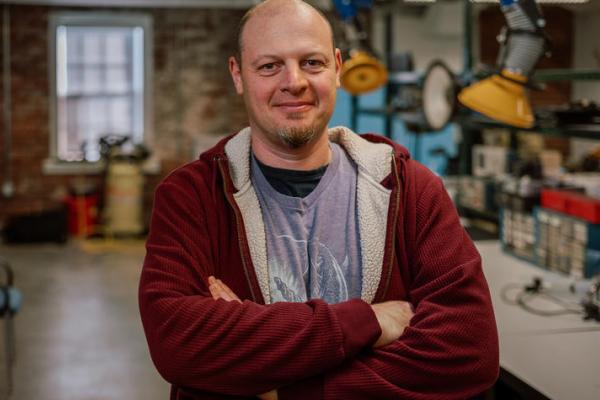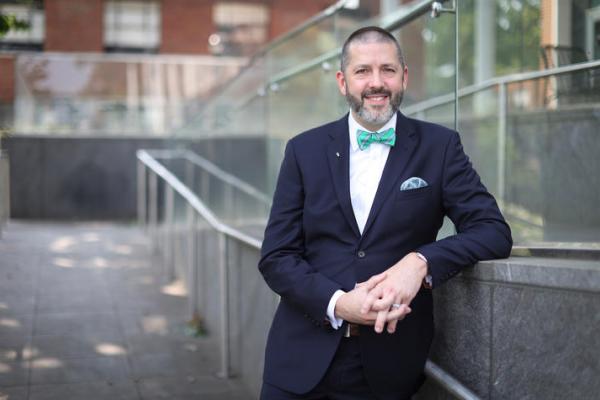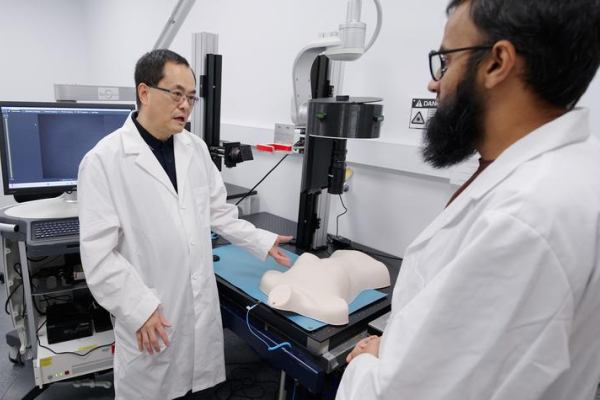People Behind Our Research: UK researcher offers hope for people with hearing loss
Hearing loss impacts millions of people worldwide and can occur at any age. More than just a medical condition, hearing loss impacts communication, connection and overall quality of life.
As awareness grows, so does the urgency to advance solutions that restore not just hearing — but engagement, confidence and independence.
The University of Kentucky’s Matthew Bush, M.D., Ph.D., chair of the UK College of Medicine Department of Otolaryngology – Head and Neck Surgery, is dedicated to bringing new hope to individuals and families affected by hearing disabilities. His work, spanning decades at UK, is transforming the way hearing loss is diagnosed, treated and even prevented.
“Hearing loss affects everybody. Hearing loss affects entire communities and people often don't realize what they might be missing,” said Bush. “I think it’s an important message is to know that they’re not alone, and that we walk alongside families and patients who are dealing with isolating, frustrating and chronic conditions like hearing loss.”
Bush says as a medical student and resident at UK, he began to get an insider view of the struggles and challenges his patients faced. Specialty care for hearing loss involves multiple factors and a team of health care professionals. This may include diagnostic assessments, hearing aid programming and cochlear implant management performed by audiologists.
Medical or surgical treatment may also be provided by otolaryngologists, who specialize in the medical management of ear, nose and throat conditions.
“Not every town or county in Kentucky has an audiologist or an otolaryngologist,” Bush said. “There are social and cultural barriers, as well as a general lack of familiarity about hearing loss. How should we address these challenges? Should hearing loss be actively treated or is this something that we just expect to happen with age.”
Fortunately, the delivery of health care is evolving. Through telehealth, remote device programming and virtual consultations, health care professionals can now reach patients across counties — and even continents — expanding access to specialized care.
“What we might see in the future are devices that no one can see from the outside,” Bush said. “No one realizes that there’s any kind of hearing impairment. This could help remove some of the stigma that’s associated with hearing loss through the technological advances.”
Earlier this year, Bush received the prestigious Presidential Early Career Award for Scientists and Engineers (PECASE), the highest U.S. government honor for early career scientists and engineers. The award recognizes his National Institutes of Health-funded research to improve hearing health care access in rural communities.
“We employ all of our resources,” Bush said. “We want to unleash all of the power and the opportunities that we have here at the University of Kentucky to help families feel that they’re not alone, that we’re with them, and that we’re going to try to in every sense, try to open doors.”
More from this series People Behind Our Research
Credits
Video production: Ben Corwin & Erin Wickey (Research Communications)


